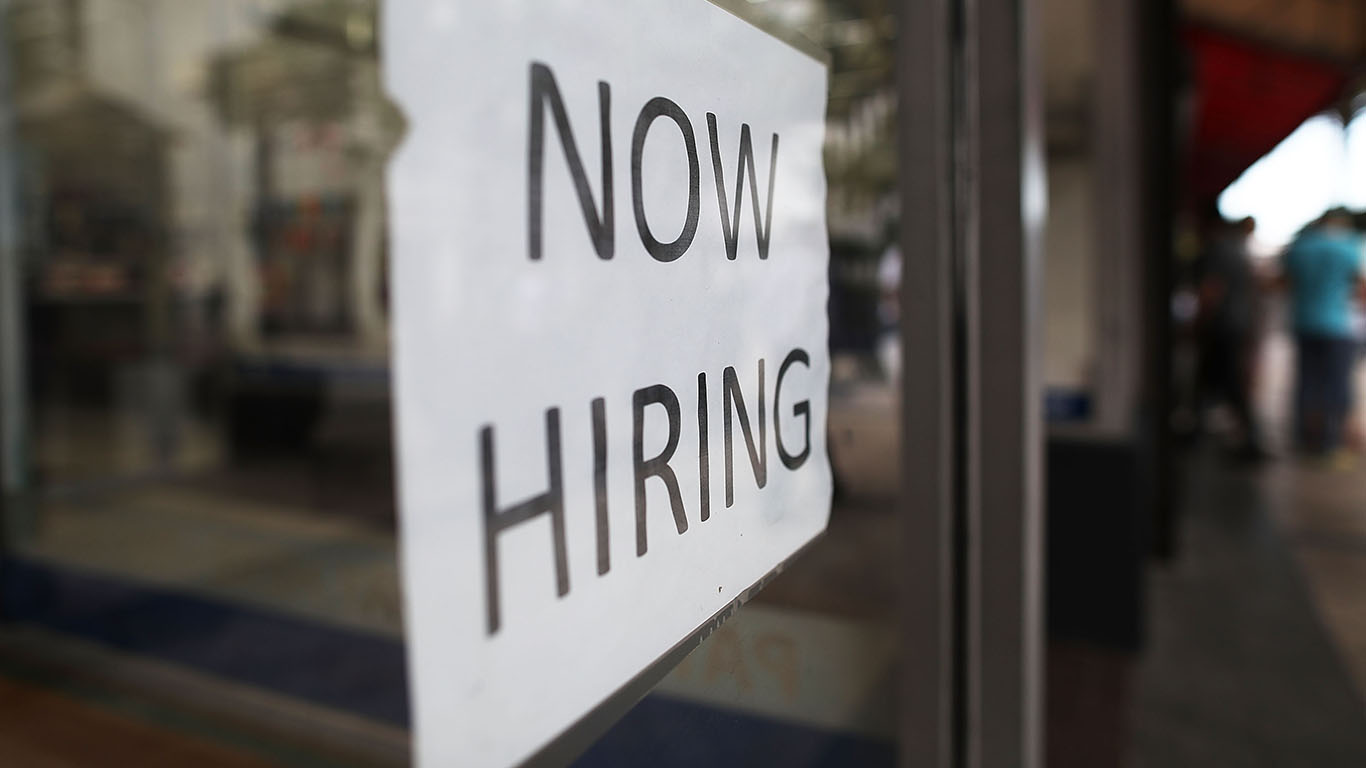
The global growth story has weakened in 2020, and the world can thank the COVID-19 outbreak for adding all the pressure so far. With manufacturing trends in China in February being the weakest since they began tallying the statistics, there have been some rightful concerns about what may happen to the job market. The good news, at least so far, is that the U.S. job market largely has been unaffected through the end of February. That may change if the spillover from the coronavirus outbreak extends and keeps creating a setting for event cancellations, but this is where we are now.
The Federal Reserve issued a surprise, or emergency, interest rate cut, ahead of the employment reports and that might have brought some concerns that the coronavirus spillover was already hurting the jobs market, on top of the other economic damage that has been seen, along with the stock market turmoil and record-low longer-term bond yields. That just does not appear to be the case, and ADP even mentioned the coronavirus in its evaluation.
Friday is expected to show the nonfarm payrolls and unemployment report from the U.S. Department of Labor. ADP released its February ADP National Employment Report ahead of the Bureau of Labor Statistics (BLS) report and showed that private sector employment increased by 183,000 jobs from January to February. The report is derived from ADP’s actual payroll data, which is broader than the BLS sampling, and its private sector employment data is also reported on a seasonally adjusted basis.
Of the 183,000 jobs added in February, large businesses dominated with 133,000 added payrolls. Small businesses added just 24,000 people to their payrolls, followed by an addition of 26,000 from medium-sized businesses. The United States continued with its status of being a post-manufacturing economy, with “goods-producing” payrolls rising by 11,000 and “service-providing” payrolls rising by 172,000.
Investors and economists will also want to pay attention to the BLS report on Friday. The Wall Street Journal published estimates of 3.5% unemployment and 175,000 in nonfarm payrolls for February, versus respective preliminary reports of 3.6% and 225,000 in January. Econoday is forecasting that the unemployment rate will be flat, and that nonfarm payrolls will rise by 177,000, and private sector payrolls will account for 155,000 of that number.
Ahu Yildirmaz, vice president and co-head of the ADP Research Institute, said:
The labor market remains firm, as private-sector payrolls continued to expand in February. Job creation remained heavily concentrated in large companies, which continue to be the strongest performer.
Mark Zandi, chief economist of Moody’s Analytics, said:
COVID-19 will need to break through the job market firewall if it is to do significant damage to the economy. The firewall has some cracks, but judging by the February employment gain it should be strong enough to weather most scenarios.
In 20 Years, I Haven’t Seen A Cash Back Card This Good
After two decades of reviewing financial products I haven’t seen anything like this. Credit card companies are at war, handing out free rewards and benefits to win the best customers.
A good cash back card can be worth thousands of dollars a year in free money, not to mention other perks like travel, insurance, and access to fancy lounges.
Our top pick today pays up to 5% cash back, a $200 bonus on top, and $0 annual fee. Click here to apply before they stop offering rewards this generous.
Flywheel Publishing has partnered with CardRatings for our coverage of credit card products. Flywheel Publishing and CardRatings may receive a commission from card issuers.
Thank you for reading! Have some feedback for us?
Contact the 24/7 Wall St. editorial team.




